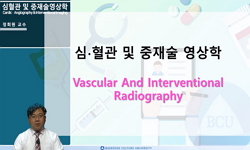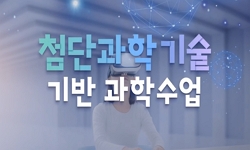The diagnosis of cancer in children poses challenges in terms of physical, emotional, and social aspects for all family members. In particular, parents experience negative emotions such as depression, anxiety, and guilt due to the uncertain and comple...
http://chineseinput.net/에서 pinyin(병음)방식으로 중국어를 변환할 수 있습니다.
변환된 중국어를 복사하여 사용하시면 됩니다.
- 中文 을 입력하시려면 zhongwen을 입력하시고 space를누르시면됩니다.
- 北京 을 입력하시려면 beijing을 입력하시고 space를 누르시면 됩니다.
https://www.riss.kr/link?id=T16373855
- 저자
-
발행사항
서울 : 연세대학교 대학원, 2022
- 학위논문사항
-
발행연도
2022
-
작성언어
한국어
-
주제어
소아청소년암 ; 가족극복력 ; 인터넷 기반 ; 중재 ; Pediatric cancer ; Family resilience ; Internet-based ; Intervention
-
발행국(도시)
서울
-
기타서명
An internet-based family resilience promoting program for parents of children with cancer : a randomized controlled trial
-
형태사항
viii, 134 p. : 삽화 ; 26 cm
-
일반주기명
지도교수: 최은경
-
UCI식별코드
I804:11046-000000542926
- 소장기관
-
0
상세조회 -
0
다운로드
부가정보
다국어 초록 (Multilingual Abstract)
The diagnosis of cancer in children poses challenges in terms of physical,
emotional, and social aspects for all family members. In particular, parents
experience negative emotions such as depression, anxiety, and guilt due to the
uncertain and complex treatment process of their children.
However, families with high resilience are able to overcome these difficulties,
showing confidence in their potential growth and performing higher family
functions during the treatment process. As such, families that are well-adapted to
the treatment environment can play a buffering role in the stress experienced by the
child during the cancer treatment process and have a positive effect on the child’s
adaptation. Therefore, it is necessary to improve the adaptation of parents of
children with cancer through interventions that promote family resilience.
The purpose of this study was to develop an Internet-based family resilience
promoting program for parents of children with cancer and to verify its effect on
family resilience, depression, and family function.
The Internet-based family resilience promoting program for parents of children
with cancer is based on the Medical Research Council’s program development
framework and developed through a systematic literature review of resilience
promoting programs in families of children with cancer (n=8), Walsh’s (1998)
Family Resilience Framework, and the expert validation and preliminary
investigation. The effectiveness evaluation of the developed program was a block
randomization control group pre-post design, and a total of 41 primary caregivers
among the parents of children diagnosed with leukemia or lymphoma at Y
University hospital in Seoul, with 20 participants assigned to the experimental
group and 21 assigned to the control group, and was conducted from June to
October 2021. Each session of the program was conducted once per week for a total
70 minutes, comprising 10- minute for introduction, 50- minute for activity, and 10-
minute for closing. A total of 4 such sessions were conducted individually for
parents of children with cancer through an Internet-based program led by a nurse
for a 4-week period. The outcome variables were family resilience, depression, and
family function, and were measured through online questionnaire three times in
total: before, immediately after, and 4 weeks after completion of the program. The
collected data were analyzed through the linear mixed-effect model using SPSS
25.0, and satisfaction was evaluated through an online questionnaire and interview
after the program was completed.
The results are as follows: The experimental group that participated in the
Internet-based family resilience promoting program showed a more significant
difference in the amount of change in family resilience (β=13.214, p=.003) and
family function (β=1.256, p=.018) compared to the control group that did not
participate; however, there was no significant effect on depression (β=2.133,
p=.187). All subjects who participated in the program showed a high program
satisfaction score of 4.75 points out 5 points in total.
In conclusion, it was confirmed that the Internet-based family resilience
promoting program developed in this study is an appropriate intervention for
parents of children with cancer who are required to spend a considerable amount of
time caring for their children, with fewer time and place constraints involved and
providing convenient access. In addition, the nurse-led program will appropriately
assess the individual needs of each family and provide interventions that can
function at the physical, psychological, and social level, so that they can adequately
cope with various situations that occur during the treatment process of children with
cancer.
국문 초록 (Abstract)
소아청소년암 진단은 가족 구성원 모두에게 신체, 정서, 사회적인 측면의 도전에 직면하게 하고, 특히 부모는 자녀의 불확실하고 복잡한 지료과정으로 우울, 불안, 죄책감 등의 부정적인 정...
소아청소년암 진단은 가족 구성원 모두에게 신체, 정서, 사회적인 측면의 도전에 직면하게 하고, 특히 부모는 자녀의 불확실하고 복잡한 지료과정으로 우울, 불안, 죄책감 등의 부정적인 정서를 경험한다. 그러나 이러한 어려움에도 가족의 잠재적인 성장을 확신하며 치료과정에서 더 높은 가족기능을 하는 극복력이 높은 가족이 있다. 이처럼 치료 환경에 잘 적응한 가족은 아동이 치료과정에서 겪는 스트레스에 완충적 역할을 하고 아동의 적응에도 긍정적인 영향을 줄 수 있으므로 가족극복력 증진 중재를 통해소아청소년암 아동 부모의 적응을 유도하는 것이 필요하다.
본 연구는 소아청소년암 아동 부모를 위한 인터넷 기반 가족극복력 증진 프로그램을 개발하고 가족극복력, 우울, 가족 기능에 미치는 효과를 검증하고자 한다.
소아청소년암 아동 부모를 위한 인터넷 기반 가족극복력 증진 프로그램은 Medical Research Council’s program development framework에 따라 소아청소년암 아동 가족의 극복력 증진 프로그램에 대한 체계적 문헌고찰(n=8), Walsh(1998)의 Family Resilience Framework을 기반으로 전문가 타당도 검증, 예비조사를 통해 개발되었다.
개발된 프로그램의 효과평가는 블록 무작위(Block randomization) 대조군 사전-사후설계로 2021년 6월부터 10월까지 서울 소재 Y대학병원에서 백혈병 또는 림프종을 진단받은 아동의 부모 중 주 돌봄자 총 41명을 실험군 20명, 대조군 21명으로 배정하여 시행되었다. 프로그램의 각 회기는 도입 10분, 전개 50분, 마무리 10분으로 총 70분동안 주1회, 총 4회기를 4주동안 간호사 주도로 소아청소년암 아동의 부모에게 개별로 인터넷 기반 프로그램을 통해 시행되었다. 결과변수는 가족극복력, 우울, 가족기능으로 프로그램 시작 전, 종료 직후, 종료 4주 후에 온라인 설문지를 통해 총 3회 측정되었다. 수집된 자료는SPSS 25.0을 이용하여 lineal mixed-effect model을 통해 분석하였고, 프로그램 종료 후 온라인 설문지와 면담을 통해 만족도 평가를 시행하였다.
연구결과는 다음과 같다. 인터넷 기반 가족극복력 증진 프로그램에 참여한 실험군는 참여하지 않은 대조군보다 가족극복력(β=13.214, p=.003)과 가족기능(β=1.256, p=.018)의 변화량에 유의한 차이가 나타났지만 우울(β=2.133, p=.187)에는 유의한효과를 보이지 않았다. 프로그램에 참여한 모든 대상자는 4.75점(총점 5점)의 높은 프로그램 만족도를 나타내었다.
결론적으로 본 연구에서 개발된 인터넷 기반 가족극복력 증진 프로그램은 시간과 공간의 제약이 적고, 편리한 접근성으로 자녀의 돌봄에 많은 시간을 소요해야 하는 소아청소년암 아동의 부모에게 적절한 중재임을 확인하였다. 또한 간호사 주도의 프로그램은 각 가족의 개별적 요구도를 적절하게 사정하여 소아청소년암 아동의 치료과정동안 발생하는 다양한 상황에 적절하게 대처하고 신체, 심리, 사회적으로 온전한 기능을 할 수 있는 중재를 제공할 수 있을 것이다.
목차 (Table of Contents)
- 차 례..............................................................................................................i
- 표 차 례 ..........................................................................................................iii
- 그림차례 ..........................................................................................................v
- 부록차례 .........................................................................................................vi
- 국문요약 ........................................................................................................vii
- 차 례..............................................................................................................i
- 표 차 례 ..........................................................................................................iii
- 그림차례 ..........................................................................................................v
- 부록차례 .........................................................................................................vi
- 국문요약 ........................................................................................................vii
- Ⅰ. 서론 ...........................................................................................................1
- A. 연구의 필요성 ...........................................................................................1
- B. 연구의 목적 ...............................................................................................3
- C. 연구의 가설 ...............................................................................................4
- D. 용어의 정의 ..............................................................................................5
- Ⅱ. 문헌고찰 ....................................................................................................7
- A. 소아청소년암 아동과 가족의 질병 경험과 극복력 .......................................7
- B. 소아청소년암 가족극복력 증진 프로그램 ................................................. 10
- Ⅲ. 연구의 개념적 기틀 ................................................................................. 15
- Ⅳ. 연구방법 ................................................................................................. 19
- A. 소아청소년암 아동 부모를 위한 가족극복력 증진 프로그램 개발 ............. 19
- B. 소아청소년암 아동 부모를 위한 가족극복력 증진 프로그램 효과평가 ...... 25
- 1. 연구 설계 .............................................................................................. 25
- 2. 연구 대상자 .......................................................................................... 26
- 3. 연구 도구 .............................................................................................. 29
- 4. 연구진행 절차 ....................................................................................... 31
- 5. 자료분석 방법 ....................................................................................... 33
- 6. 대상자의 윤리적 고려 ............................................................................ 33
- V. 연구결과 .................................................................................................. 34
- A. 소아청소년암 아동 부모를 위한 가족극복력 증진 프로그램 개발 ............. 34
- B. 소아청소년암 아동 부모를 위한 가족극복력 증진 프로그램 효과 평가 .... 43
- Ⅵ. 논의......................................................................................................... 59
- A. 소아청소년암 아동 부모를 위한 가족극복력 증진 프로그램 개발 .............. 59
- B. 소아청소년암 아동 부모를 위한 가족극복력 증진 프로그램 효과 평가 ..... 63
- C. 연구의 의의............................................................................................. 68
- D. 연구의 제한점......................................................................................... 70
- Ⅶ. 결론 및 제언 ........................................................................................... 71
- 참고문헌 ....................................................................................................... 73
- 부 록.......................................................................................................... 94
- 영문초록 ..................................................................................................... 115
- 영문요약 ..................................................................................................... 118













